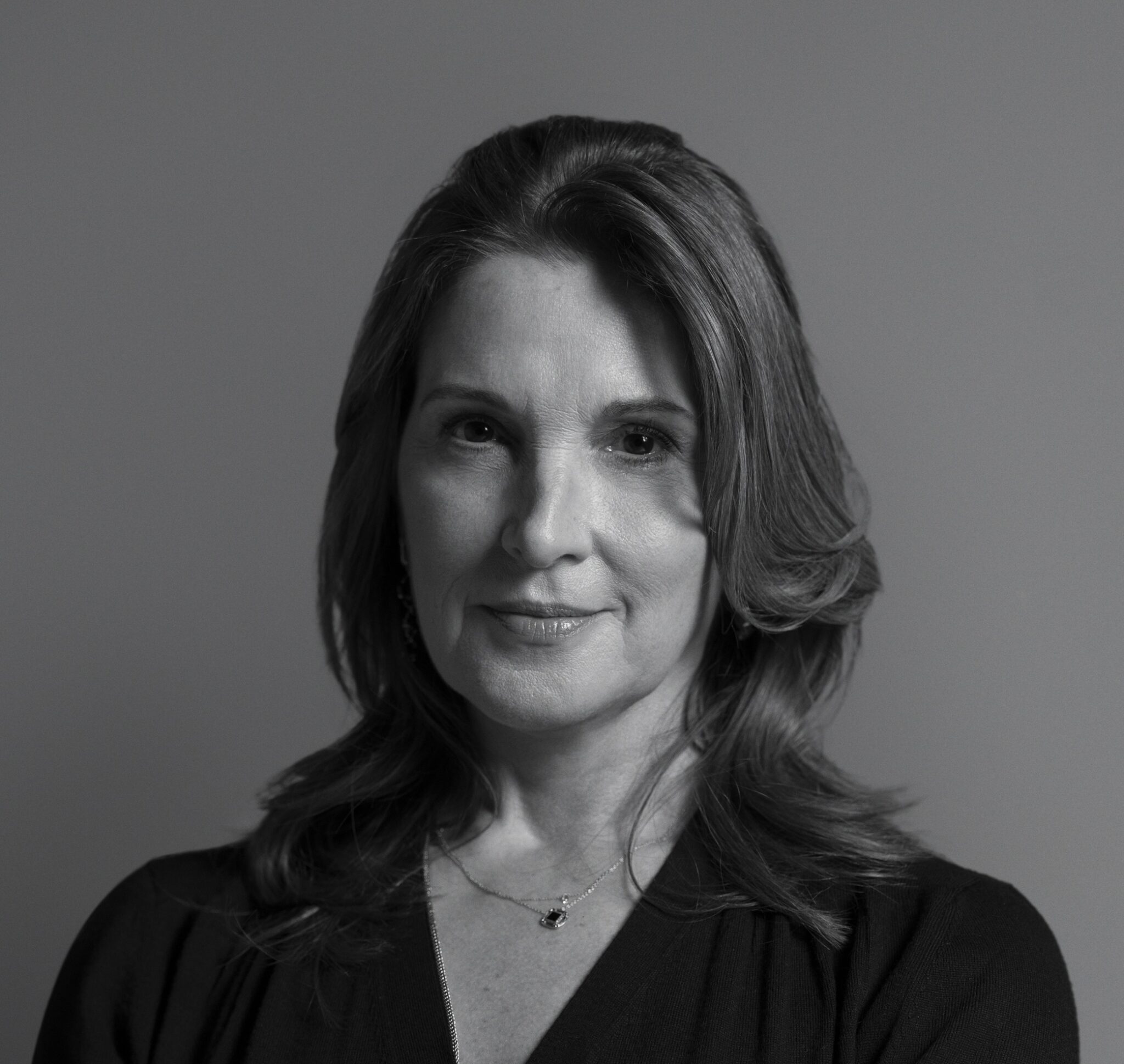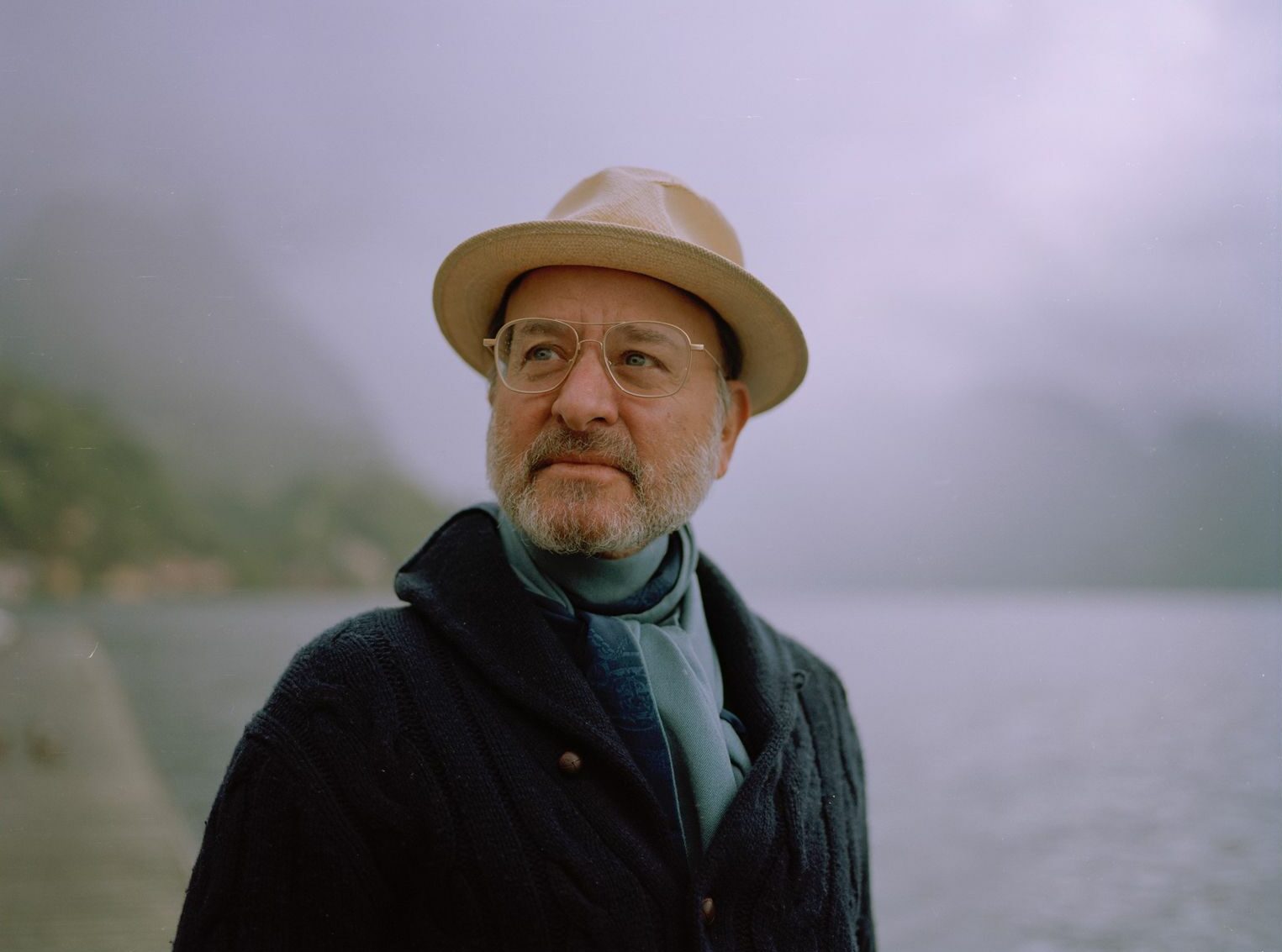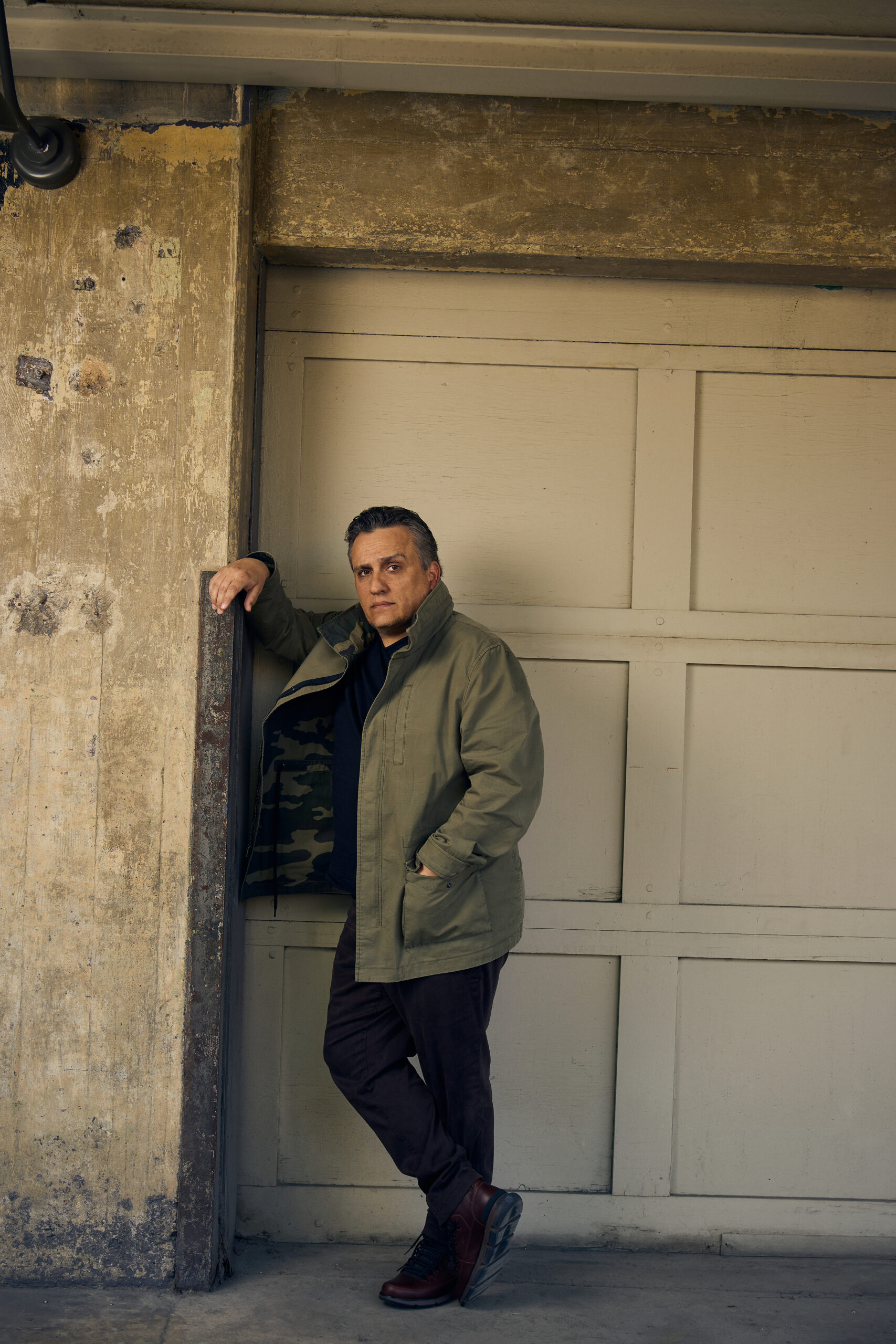Barbara De Fina
Producer
Bio
How did you start your career in the film industry as a film producer?
I started long before I became a producer, I started from a very low-level position and didn’t become a producer for about 15 years, so I spent a lot of my career as a production coordinator and then a production manager and then a line producer and then a line producer before becoming a full-time producer. So when I started with the first job I had, I was very fortunate and found myself assistant production coordinator on a Sidney Lumet film with Robert Hooks and Lynn Redgrave. It was a great Hollywood film with a really great crew, the great James Wong Howe, who is the director of photography for a wonderful group of people. So that was my initiation and from there I continued for many years to work in production not as a producer but as an assistant on low budget films. I worked with Sean Cunningham who had done Friday the 13th. I didn’t make horror films with him, but it was a great learning experience and he was a really great producer and director. And from there I worked for Alan King, who was a comedian and had a production company and we did a lot of TV. So I learned both television and film. I spent most of my time working on films and eventually I got to produce The Colour of Money with Scorsese. It was a long, long process, but I learned a lot of very important things along the way that really helped me.
You mentioned in one of your interviews that you were interested in becoming a production manager from a young age. How did you think about the duties of a producer at the time and what was it that made you really want to learn more about it?
Actually, you know, there’s something that might be relevant now. I was working as a production coordinator on a Woody Allen film when I decided I couldn’t do it anymore because I was so tired of the situation, the harassment, actually. It got to the point where I couldn’t take it. Having to constantly joke around and try to stop some people who were actually sexually harassing me. So I decided after that film that I wasn’t going to do it anymore and I was going to try to become a production manager, which would mean that I would have a lot more control over my workplace and I would have a lot more control over my life. So that’s when I decided to actually become a production manager and again I was incredibly lucky. When I decided one day to quit, a few weeks later my phone rang and I was offered a job by Alan King at his production company doing TV shows, so you know, I’ve always had it. I call it luck and I mean part of it is putting yourself in the right place. But I’ve always been lucky that way and things got better when I became a production manager. There was still harassment, but I had a lot more control and I could talk to people who could make a difference and help me.
In your opinion, what element of experience is the most important for a first-timer’s first steps in filmmaking?
I think for a young person, depending on what they want to do, I think they can learn a lot by working in a lower post. I mean most people don’t become producers or directors or even filmmakers straight away, I think it’s very important to learn the essentials and part of your job is working on a set and watching what other people are doing and learning how to behave. There’s a real hierarchy, I felt it’s almost like an army, where certain people talk to certain people and there’s a certain way you approach people. And then, once you spend some time on a set and see what happens, I think that’s when you have to decide exactly what you want to do and then move in that direction. Some people go to film school and that’s really helpful. I think it’s useful because you get to know people and I think in film school you get to know the people you’re going to work with and you form a better relationship with each other and then you can all work together and help each other. So I think it’s a lot to do with how you treat people and how you behave. And then, of course, you also have to learn the fundamentals. Whether it’s directing or producing or even if it’s a creative role, it’s still an art. So you have to learn your craft as well as have creative ideas. These two go hand in hand, they are both very important.
Since the cast follows the director’s lead, is it more important to have a good director or a great cast for a film to succeed? Can great stars guarantee commercial success?
I don’t think big stars guarantee commercial success anymore, there was a time when you knew that if you had a big star everyone would come to see the film to see the star. And I think things have changed dramatically now. A lot of movies that are very popular and make a lot of money don’t have big stars anymore. And I think the same thing happens with directors sometimes. There’s a new director who’s making a hit and he’s not a famous director. So I think things have changed and I think the good news is that it’s opened up the space more to different people. But sometimes I think it makes it harder because there’s no quick “I’ll find this director, I’ll find this star and then the money will come.” As far as streaming goes, I have mixed feelings. I think streaming can give a lot of people a chance, although I always feel really bad if a film doesn’t end up getting a theatrical release. I always feel bad, you know, for young directors and producers who never get to see their films with a wide audience. I think that’s a very important way to learn. If you don’t see your film with an audience, you don’t really understand what works and what doesn’t and how to do things better. So the industry has changed a lot in the last two or three years.
As a producer, do you set boundaries? If so, on whom? And could you share those with us?
In general, do you prefer to flatter your partners or take a harder line in terms of what you say?
You know, sometimes I teach occasionally or do a masterclass and I always say and I think it’s very important, no matter how experienced you are, that you have to respect the rules. And you certainly can’t break the rules until you learn them and work with them and work within them. So I think if you want to mix up some genres or experiment with something and create something different, I think that’s great.
But for example, there was a student of mine who was writing scripts and he refused to use punctuation and I’ve seen that in some other things as well. And I was explaining to him that you have to use punctuation in order for me to read it. So I think there are rules that can be broken sometimes but there are some that have to be respected. The rules are important to run a set. I mean you can’t have a director who doesn’t prepare and tell the rest of the crew what they’re going to do the next day. And then expect things to run smoothly. Also, you know you can’t have a crew that arrives on set and the director says he’s decided to shoot it in a completely different way and needs a different set. You have to respect each art otherwise you won’t get a good result and the directors won’t get a good result either. So I try to work with people who are very serious about their art and ready to do the best job in the shortest time creating something they are proud of.
What is the most important ingredient for a film’s success and how do you look for it?
I always say this although sometimes, you know, occasionally I change my mind, but I always feel that the script is the most important element. It’s the foundation, it’s like building a house. You need the foundation first. So I think the story and the script and sometimes the story more than the script is crucial. But then a very important thing to start with is the cast and the director. I always want to find a director and then the actors and then build on that. And then in Post-Production and sometimes even during production the music is important. It’s important to know what music will be used and sometimes you can wait until post. But I’m always surprised when I’m in the mixing room and see how the music changes the picture. So I think everything is important. But I think if you don’t have a good story and you’re not a good storyteller in the film, it’s not going to work.
To a new prospective producer, what do you think is the most important aspect of their character or personality to their future success?
A producer should always solve problems and enjoy solving problems because that’s what they do all day. You solve small and big problems; but if you don’t enjoy problem solving and being under a little, you know, pressure, then I don’t think you’re going to be a happy producer or a good producer. So I mean, I mean, there’s something that I like about producing, and a lot of people don’t like it because it involves a lot of pressure. But it also involves solving more than one problem at the same time. But I always like to get to the end of the day and feel like we’ve had our day and I’ve solved all the problems, that’s very reassuring. Much more so than in post-production for example, where it’s a much longer process. The shooting process is a long process, but day to day. I really enjoy the challenge of solving the problems that come up every minute and dealing with people and their problems and I find it very exciting. If you don’t like doing that, I think you’ll be very unhappy.
What do you think is the most important quality a good producer can bring to a film?
I think human relationships are very important in succeeding in making a film. As well as production, shooting and promotion I think that’s very important. You have to value and nurture your relationships and the people you’ve met along the way. I always feel that no matter how angry or upset I am with someone, that I always have to leave the relationship in a good mood. Because you never know who that person will be five years from now or two years from now. I mean there’s been a case where I was a coordinator and someone was my assistant and 20 years later they were running a studio. You never know when you’re going to meet someone again and you have to be careful how you treat people and also respect them because down the road they can be very valuable and very useful. Whether it’s an agent or a studio head or whatever they can be very helpful in making contacts to get your film ready.
What piques your interest in a script and do you yourself look for scripts?
I look for scripts myself, as well as books and original material in general. The most important thing is the story and it doesn’t have to be a specific genre. I always think a script is great when I start reading it and the next time I look at my watch it’s been 45 minutes or an hour and I really don’t understand how it went by. And then there are other scripts where I’ve read 20 pages and it feels like an hour has passed. So I think story and writing is very important to me and it doesn’t necessarily have to be specific genres or specific characters. I think in some ways it’s also about the experience, the experience of reading. You know, it’s the same with a book or a play or even a magazine article. There are some books that you read and you can watch the film as you read them. And then there are some others that just don’t click with you. So I think it varies, but for me in a way what matters is the feeling it leaves you with. Did I enjoy it? Did it go by really fast, did it make me want to read more? I think that’s what I’m looking for.
Are you always present on set?
You know, I tend to spend a lot of time on set. Although it also depends on the director and the crew. If I feel like I trust them and that we all have the same perspective and creative vision, then I wouldn’t necessarily be on set all day. Sometimes I’m on set all day while other times I’ve spent more time in the office. It depends on what’s going on behind the scenes and what’s going on in the office. If there are problems that need to be solved or things that need to be sorted out. A producer is also responsible for the finances and expense reports and if they don’t do them personally, they have to oversee and approve them before they go to the studio or the financier. So there are a lot of things that need to be done and I always feel like I spend more time with lawyers than you would expect. There are a lot of things that you have to fix that aren’t in the set. It’s about getting the things on set that are needed to make the film. So it depends on the film, but I love sitting on set.
If you have a preference for a particular shot and the director has a different approach. Which one will prevail?
I think there are two factors: The director is a creative job, but it’s also a skill. So I think a good director and the directors that have impressed me are those who have really taken the time to learn their craft. I also always try to work with directors who share the same creative vision. That way there aren’t too many conflicts. And I believe in collaboration, so we talk about all things and make decisions together. The director will come up with an idea and I’ll say it’s great or could he try it a little differently? Not to disagree, but to try to work together and try to make things better. If you’re in a situation where you’re telling the director that you can’t do this or you can’t do that, that’s going to be very destructive to the whole process and to the creativity of the film itself and it’s simply not going to work. So, it’s always important to have a director that you really share the same vision and that the two of you are really collaborative and happy to work with.
Given the glamour that comes with being a producer.What are the difficulties and points you would like to highlight to young people so that they have a clearer picture of the real work of a film producer?
There are different ways to get into the industry and it depends on what you want to do and it also depends on what is accessible to you. If you can go to film school, that’s great. I think you have to decide what you want to do first. There’s undergraduate and postgraduate studies and I think that when you finish your undergraduate studies and go to postgraduate studies, you have to know exactly what you want to do. And then that opens up a lot of doors and gives you opportunities. The other way is to go and work directly on a film. You have to start from the bottom and be willing to do that. And if you’re just willing to be there, you’re going to learn so much and I think in some ways you might learn more than you could learn in film school. And the advantage is that you get to meet people. And those people that you’re going to meet are the people that are going to help you move forward and help you get other jobs and move up. So again, it’s very much about how you behave and how you treat people. You have to be very selfless and work very hard. But in some ways I think that might be the best route. There are other ways to get into the industry. There are people who work in agencies as assistants and then instead of becoming agents, they make introductions to people who can help them become producers or assistants and get into the industry that way. I mean there are many ways to get into the industry and film school is just one of them. You have to be able to put yourself in the right place at the right time and hope that’s how you’re going to get ahead. Luck is a factor, but I think you’re lucky if you put yourself in a place where you know that luck will find you somehow. You have to be kind of proactive and put yourself in a place where you might run into somebody. Or for example, if you get a job, whatever it is, if you get an offer, just take it and you’ll meet people and then you’ll be able to do better through it. I’ve taught a couple of courses at Columbia University in production at the graduate level and a lot of my students have become producers. But you can also become a producer by working your way up. You can become a producer by getting a job as a script analyst, which then leads to script development, which can get you a job at a studio, and you can get into production that way. Some producers I know started out as casting agents and through being casting agents they met producers, actors and studio people and eventually got the opportunity to produce themselves. So there are many different ways to get into the industry and film school is just one of them. But you don’t have to go to film school specifically to produce. There are many ways to get into the industry.
-
Barbara De Fina (35 min.)
The Producer of Cape Fear and Casino



